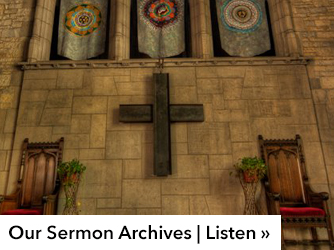by Barb Havens
I don’t have statistics regarding this, but I’m sure that North Americans are the largest consumers in the world. Consumption is our middle name — from food to clothes to televisions to computers to EVERYTHING. For most of my life I purchased those goods without any thought of the source of those goods and who made them. These past several years the concept of “Fair Trade” has made its way into my consciousness and has slowly taken root; the more I learn about it, the more I recognize the power of Fair Trade to change lives. I now wonder why I never asked those questions before.
At University Church we have been using Fair Trade coffee for our fellowship hour. We also have made available several items — coffee, tea, chocolate — for you to purchase. Our hope is to raise awareness of how the choices we make as consumers affect the lives of others in the world. But what does “Fair Trade” actually mean?
A basic way to understand Fair Trade is that it is one way of leveling the playing field in the global marketplace — an alternative to the corporate model where profits benefit those who own the corporation, and the workers often only get the “crumbs,” but not a sustainable wage. It is buying products that were not made or processed in a sweatshop or made in a way that destroys the natural environment. Within the Fair Trade commodities market (coffee, chocolate, sugar, bananas), the source of the product is often from small farmers who have joined cooperatives in their community to sell their product directly to stores or wholesalers in the US, under the Fair Trade Certification, ensuring a just price for their products. Fair Trade is not charity, but a way of being fair and just and paying the real cost of a particular item.
If being a Christian encompasses working toward God’s Kingdom, then we also need to take God into the market place and find out where social justice fits within our economic system. Doing justice is difficult at times, and we all need to figure out how each of us will live into that goal. Being perfect is impossible, and there are many times when we need to do the simplest thing at the time — weighing the benefits with the challenge. There will be other times, though, when we are able to make a shopping choice that will create justice for those who create/grow our products. Being aware of the source of our goods, asking questions about the supply chain, and becoming critical consumers can change us and the marketplace and our world for the better.
The following websites give more information about Fair Trade, as well as give sites and retailers where you can purchase goods:
- fairtradefederation.org
- fairtrade.org
- chicagofairtrade.org
- greenamerica.org
- sweatfree.org

